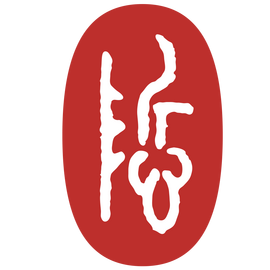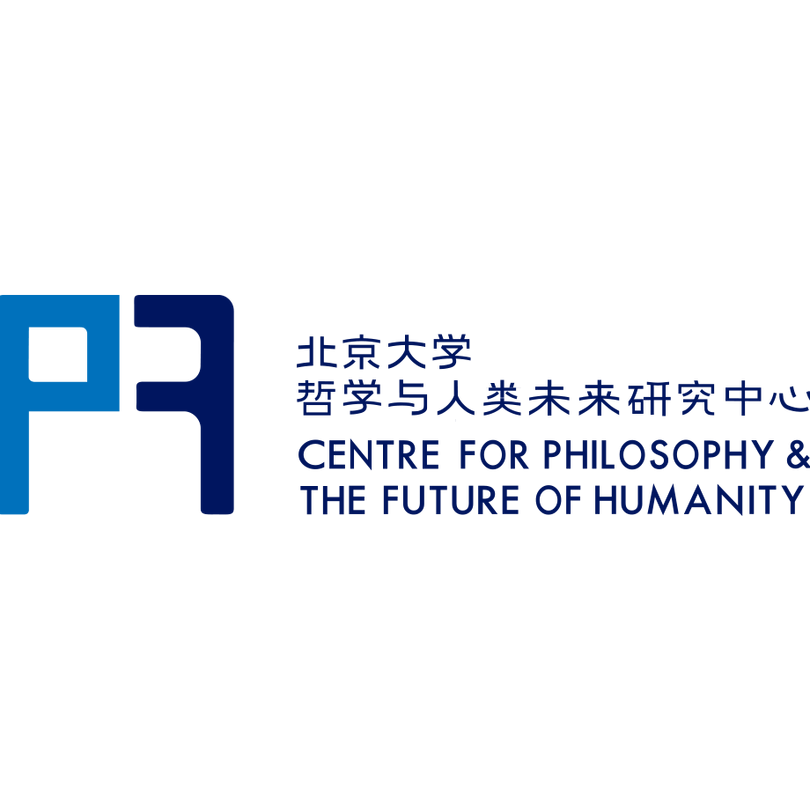
Mathematical Philosophy Week 2019
Dates: June 22- 25
Location: Department of Philosophy, Peking University
Philosophy joins hands with mathematics for the future of humanity.
Keynote Speakers (in alphabetical order)
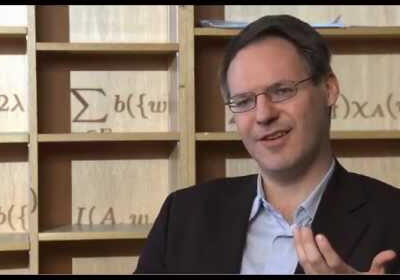
Hannes Leitgeb
Hannes Leitgeb is Chair of Logic and Philosophy of Language, Alexander-von-Humboldt Professor, and Co-Director of the Munich Center for Mathematical Philosophy (MCMP) at Ludwig-Maximilians-University Munich. His research interests concern logic, epistemology, general philosophy of science, philosophy of cognitive science, philosophy of mathematics, philosophy of language, metaphysics, metaphilosophy, and the history of logical empiricism. After finishing PhDs in mathematics (1998) and philosophy (2001) at the University of Salzburg, he worked at Salzburg, Stanford, and the University of Bristol, before moving to LMU Munich in 2010, where he founded the MCMP. In 2007 he received the Philip-Leverhulme-Prize by the British Leverhulme Trust and the Friedrich-Wilhelm-Bessel-Research-Award by the German Alexander-von-Humboldt Foundation, and in 2010 he was awarded an Alexander-von-Humboldt Professorship by the Humboldt Foundation. He is the current Editor-in-Chief of Erkenntnis, a previous editor of the Review of Symbol Logic, and a member of the Academia Europaea and the Leopoldina (the German Academy of Sciences). In 2008 he co-organized the 31st Wittgenstein Symposium in Kirchberg, and in 2015 he was the Program Chair of the 15th Congress of Logic, Methodology and Philosophy of Science at Helsinki. His massive open online course on Mathematical Philosophy, which he taught jointly with his colleague Stephan Hartmann, attracted more than 100000 students worldwide.
R. Ramanujam
R. Ramanujam is Professor of Theoretical Computer Science from the Institute of Mathematical Sciences, Chennai. His research interests are in mathematical and philosophical logic with applications to the theory of distributed systems, security theory and game theory, and the connections between logic and automata theory. He is an editor of ACM transactions on computational logic and was a Lorentz Fellow in the Netherlands in 2010. He has an active interest in science and mathematics popularization and education, through his association with the Tamil Nadu Science Forum. Prof. Ramanujam is also a former president of the Association for Logic in India.
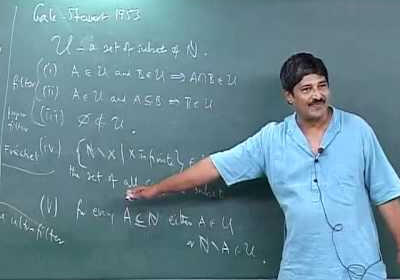
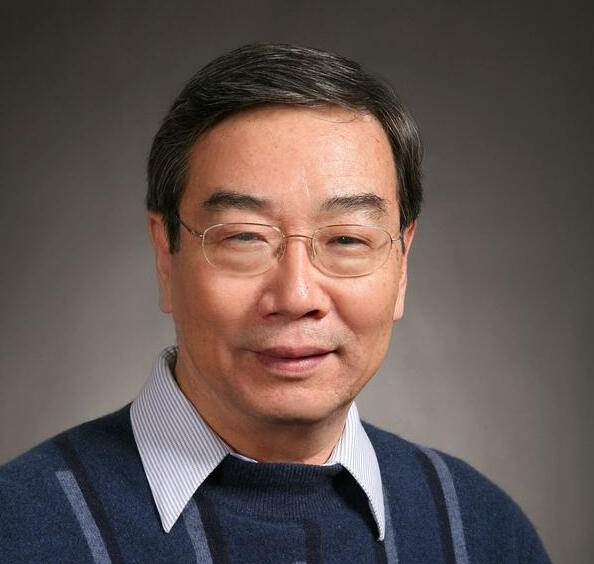
Lan Wen
Lan Wen is a Professor of Mathematics at Peking University. He holds a doctoral degree in Mathematics from Northwestern University (1986). Prof. Wen received Chern Shiing S. Mathematics Award and Hua Loo-Keng Mathematics Award for his work on dynamical systems. He was elected to Chinese Academy of Sciences in 1999. Prof. Wen is also a former president of the Chinese Mathematical Society.
Programme
June 22 (Saturday)
Satellite Event:
Workshop on Modal Logic
Programme for the workshop
Venue: B114, Department of Philosophy, Peking University
The rest of the programme (Sunday-Tuesday) is summarized below (you may scroll left on your phone to see the full table):
| . | Sunday (23rd) | Monday (24th) | Tuesday (25th) |
|---|---|---|---|
| Venue↓: | 人文学苑 Bld.1 108 | 人文学苑 Bld.2 B114 | 人文学苑 Bld.2 B114 |
| 10:00 - 11:30 | Leitgeb: Philosophy as Rational Construction and the Role of Mathematics in Philosophy | Leitgeb: On Merely Expressive Devices | Ramanujam: Some Questions for Philosophy from the Theory of Computing |
| Venue↓: | Bld.1 108 | Bld.2 B114 | Bld.2 B114 |
| 14:00 - 15:30 | Wang: Logic in Philosophy, Math, and Computer Science | Leitgeb: HYPE: A System of Hyperintensional Logic and Semantics | RJ Yang: Causal Inference: Philosophy, Math and Machine Learning |
| Venue↓: | Bld.1 108 | Bld.2 B114 | Bld.2 B114 |
| 16:00 - 17:30 | RZ Yang: Foundation of Mathematics and the Reducts of the Set-theoretical Universe | Xiong: Paradoxes and Revision theory of truth | Yu: Provability Logic and Logic of Proofs |
| Venue↓: | Bld.1 108 | 二教地下双创中心讲堂 | 二教地下双创中心讲堂 |
| 19:30 - 21:30 | Wen: From a "Three cards paradox" to the Liar paradox | Liu, Xing, Yang & Ye: Discussions on Philosophy of Mathematics | Wu & Zhou: Discussions on Philosophy, Logic, and AI |
注:入校相关信息敬请关注北大保卫部信息并按相关规定执行。
Detailed Programme
An online PDF version.
Public lectures and evening discussions are aimed at a broader audience assuming the least background knowledge.
Slides of the talks can be found below.
June 23(Sunday)
Venue for the whole day: Main Hall 108, Building 1 of Lee Shau Kee Humanities Buildings
(李兆基人文学苑1号楼108, 哲学系对面), Peking University
10:00-10:10
Opening
10:10-11:40
Hannes Leitgeb (Munich):
Public Lecture: Philosophy as Rational Construction and the Role of Mathematics in Philosophy (Slides)
Abstract In this talk I will develop a metaphilosophical proposal for what philosophy might (partially)have been in the past and what it might be in the future: the discipline of rational construction. From this conception of philosophy, I will draw some general conclusions on the meaning of progress in philosophy and the role of logical and mathematical methods in philosophy.
14:00-15:30
Yanjing Wang (PKU):
Public Lecture: Logic in Philosophy, Math, and Computer Science (in Chinese) (Slides)
Abstract. This public lecture has a twofold aim. Firstly, I would like to give a map of Logic, as a field and the most important tool for mathematical philosophy, by briefly going through the history of Logic and its intertwined connections with Philosophy, Math, and Computer Science. Secondly, as a guide to the audience, I will try to relate the topics that we survey with the coming lectures in this mathematical philosophy week, and provide some basic background knowledge that is useful for the later lectures.
16:00-17:30
Ruizhi Yang (Fudan):
Foundation of Mathematics and the Reducts of the Set-theoretical Universe (Slides)
Abstract. Set theory has been widely accepted as the foundation of mathematics. However, confidence in its objectivity has been challenged by the phenomenon of independency. A compromise has been proposed to look at the theories of the reducts of classical models of set theory. Hamkins and Kikuchi (2016) showed the theory of set-theoretic parthood relation has a complete decidable theory, hence cannot serve as a foundation theory of mathematics. In this talk, we will investigate more reducts and their theories, e.g., the theory of set-theoretic union, intersection, power set operation, equinumerous relation, and their combinations.
===========
19:30-21:30
Lan Wen (PKU)
Public Lecture: From a "Three cards paradox" to the Liar paradox (in Chinese)
Abstract. We construct a Liar-like paradox of three cards by translating into our ordinary language the argument of a system of Boolean equations that has no solution. Then the solution of the “Three cards paradox” has to be algebraic in nature, hinting that the Liar paradox should be resolved in the same way.
June 24 (Monday)
Venue for the lectures: B114, Department of Philosophy, Peking University
10:00-11:30
Hannes Leitgeb (Munich):
On Merely Expressive Devices (Slides)
Abstract In the first part of this talk I will develop a semantics for merely expressive devices: linguistic expressions that contribute to the propositions expressed by sentences that include these expressions but which do not at the same time contribute to the truth conditions of the propositions thereby expressed. (Logical operators constitute paradigm case examples of such mere expressive devices.) In the second part of the talk, I will use the semantics to throw some new light on various important philosophical debates, such as on the methodology of stipulative definitions, the viability of the logical reconstruction of analyticity, a Neo-Carnapian understanding of modal expressions in metaphysics, and the metaphilosophical status of logic and metaphysics
14:00 - 15:30
Hannes Leitgeb (Munich):
HYPE: A System of Hyperintensional Logic and Semantics (Slides)
Abstract This talk will introduce and discuss a new system of non-classical logic and semantics: HYPE. Amongst others, the talk will show how HYPE can be used (i) to address the problem of semantic paradoxes (such as the Liar paradox) and (ii) to give a semantics for modal operators that create hyperintensional contexts (such as for metaphysical grounding).
16:00 - 17:30
Ming Xiong (SCNU):
Paradoxes and Revision theory of truth(Slides)
Abstract. In this talk, I will give a brief introduction to the revision theory of truth, and then explain a general approach to designing paradoxes via the revision theory of truth. I will show that just as we can (but we should not at least so far) create a baby with preferred traits by genetic selection engineering, we can also create a paradox (or any other similar self-referential object) with certain features by use of the revision-theoretic methods! In the field of truth theories, the paradoxes that you had seen before are just the tip of an iceberg. I try to give you a full view of paradoxes.
==========
19:30 - 21:30
Evening discussion on the Philosophy of Mathematics (in Chinese)
Venue for the evening discussions: 北京大学全球大学生创新创业中心大讲堂(第二教学楼地下)
Host: Shengyang Zhong (PKU)
Zhuanghu Liu (PKU), Taotao Xing (PKU), Ruizhi Yang (Fudan) & Feng Ye (CNU)
June 25 (Tuesday)
Venue for the lectures: B114, Department of Philosophy, Peking University
10:00 - 11:30
R. Ramanujam (Chennai):
Public Lecture: Some questions for philosophy from the theory of computing (Slides)
Abstract Mathematicians and physicists are used to talking of “in principle” solutions, leaving it to implementations to work out the details. But what if there is another principle that limits implementations as well? Complexity and resource consciousness are modern concerns, both in the physical world and thought. In the last 70 years, computer science has not only given us an amazing tool that has transformed the world but also connected it up in ways unimagined before, demonstrating flexibility unparalleled in history. Even a quick superficial survey of ideas in computer science raises fundamental questions of interest to philosophy: on intrinsic complexity, on resource aware living, on the nature of time, on randomness, and most intriguingly, on modes of communication.
14:00 - 15:30
Renjie Yang (CNU):
Causal Inference: Philosophy, Math and Machine Learning (Slides)
Abstract. Causal knowledge is essential to predict how a system will behave when it is subject to an intervention. In many scientific disciplines, causal connections are usually more informative and helpful than associational information in making predictions and decisions. In the past 30 years, there has been a great deal of research on inferring graphical causal models from both experimental and non-experimental data. In this talk, I will survey the graphical causal modeling framework as a mathematical theory of causality and discuss its philosophical foundation. I will then describe the problems for reliable inference of causal relations from observational data and introduce recent developments of machine learning solutions and their limitations.
16:00 - 17:30
Junhua Yu (Tsinghua)
Provability logic and logic of proofs (Slides)
Abstract. According to Brouwer, intuitionistic truth is understood as provability. Stipulations independently proposed by Heyting and Kolmogorov around 1930 which make Brouwer’s idea more explained are usually called provability semantics of intuitionistic logic (or BHK semantics following their names). A first step towards a formalization of BHK semantics was achieved in a 1933 short note by Gödel, where intuitionistic propositional logic was embedded into a logic which is a version of Lewis’ modal logic S4. An inconsistency between the reading of as and Gödel’s second incompleteness theorem split the thread into two directions: (1) find a modal logic that fits the above reading of , and (2) find a provability semantics for S4. The first has led to, with the help of Löb 1955 and Solovay 1976, Provability Logic (GL); and the second was achieved by Artëmov’s Logic of Proofs (LP) 1995 unconsciously following Gödel’s unpublished idea dated back to 1938. In this talk, both formalizations of formal proofs will be introduced, emphasizing on selected topics including their proof theory.
========
19:30 - 21:30
Evening discussions on Philosophy, Logic, and AI (in Chinese)
Venue for the evening discussions: 北京大学全球大学生创新创业中心大讲堂(第二教学楼地下)
=======
Host: Yanjing Wang (PKU)
Xihong Wu (PKU), Beihai Zhou (PKU)
Programme of Modal Logic Workshop
A satellite event of the Mathematical Philosophy Week at PKU
Date: June 22
Venue: B114, Department of Philosophy, Peking University
9:30 - 9:35 Opening
Session 1
9:35 - 10:15 Yifeng Ding (UC Berkeley)
On the Logic of Belief with Propositional Quantifiers
10:15 - 10:55 Huimin Dong (Zhejing University)
Norms in Social Networks
10:55 - 11:10 Break (15 min)
Session 2
11:10 - 11:50 Jie Fan (University of Chinese Academy of Sciences)
Two variants of non-contingency operator
11:50 - 12:30 Liangda Fang (Jinan University)
Knowledge Compilation in Multi-Agent Modal Logics
12:30 - 14:00 Lunch (1 h 30 min)
Session 3
14:00 - 14:40 Fengkui Ju (Beijing Normal University)
CTL with Dynamic Contexts
14:40 - 15:20 Zuojun Xiong (Southwest University)
Issues of Dynamic Hybrid Logic for Followership
15:20 - 15:40 Break (20 min)
Session 4
15:40 - 16:20 Jixin Liu (PKU)
Transfering models in WAML
16:20 - 17:00 Xuefeng Wen (Sun Yat-sun University)
How Many Logical Consequences Do We Need in Modal Logic?
About
About Mathematical Philosophy Week:
Both Philosophy and Mathematics study abstract concepts and structures, and they share an intertwined early history. On the one hand, a lot of mathematical tools are used in the frontier philosophical research on the concepts such as infinity, necessity, possibility, existence, truth, meaning, knowledge, belief, causality, and so on, which makes the philosophical discussions more precise. On the other hand, in facing the past three crises in mathematics in history, philosophical ideas played a key role in the development of mathematics. In particular, the early 20th century witnessed the development of mathematical logic which deepened our understanding of mathematics and its foundation.
Philosophical Mathematics Week is aimed at presenting the connections between modern (technical) philosophy and mathematics in a comprehensive way, showing the role of mathematical tools played in the current philosophical research. At the same time, we also hope to be able to demonstrate the lively connections between philosophy and other related disciplines such as theoretical computers, artificial intelligence, linguistics, and so on.
哲学与数学都以抽象的概念和结构为研究对象,在历史上有很多渊源。一方面,在关于无穷、必然、偶然、存在、真、意义、知识、信念、因果等概念的前沿哲学研究中,大量用到了数学的工具,使得哲学讨论可以更加的清晰和深入。另一方面,在三次数学危机中,哲学思想都对数学的发展起到了关键性的作用,特别是20世纪初数理逻辑的发展深化了人们对数学及其基础的认识。本次数理哲学周活动旨在比较全面地向大家呈现现代哲学与数学之间的联系,特别是数学工具在哲学研究中的关键作用,以及哲学与理论计算机、人工智能、语言学等相关学科的交叉与融合。
About CPFH: Amid profound changes in the global landscape and social order brought by technological revolutions, the Centre for Philosophy and the Future of Humanity (CPFH) at Peking University (PKU) aims to make use of the university’s comprehensive multidisciplinary advantages to forge a research community integrating the humanities and sciences. Based on its rich accumulation in philosophy and other fields of humanities, the research centre is committed to reflecting on theoretical and ethical foundations of cutting-edge science and technology, foreseeing problems faced by human society in the future, and exploring possible solutions.

